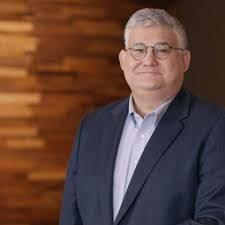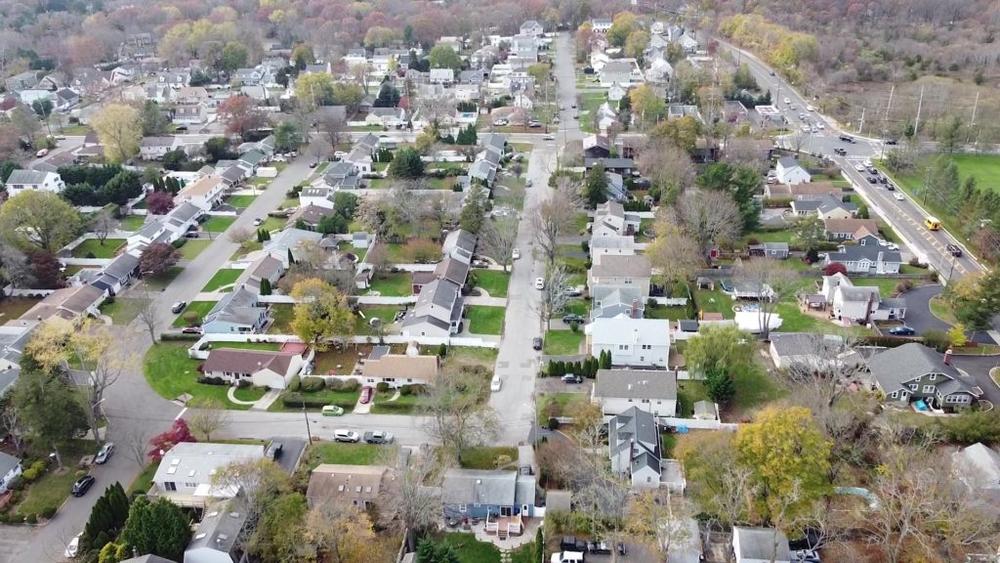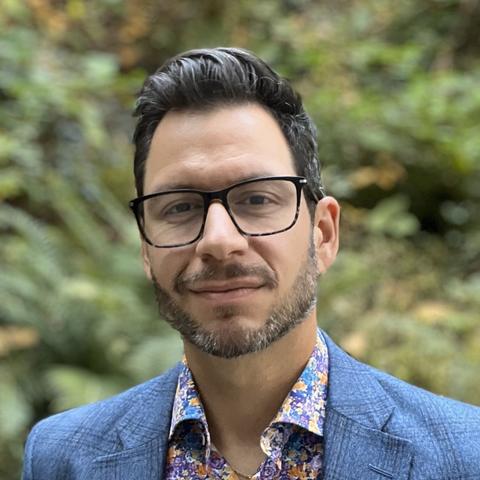
Section Branding
Header Content
Georgia Today: Supreme court term limits; Coin-operated games tax revenue; Zoning laws and housing
Primary Content
LISTEN: On the Tuesday, Sept. 19 edition of Georgia Today: An Atlanta congressman leads the charge to limit the terms of U.S. Supreme Court justices; the Georgia Department of Revenue loses a bid to tax the revenue of coin-operated games; And how can state zoning laws be changed to help with the state's housing shortage?

Peter Biello: Welcome to the Georgia Today podcast from GPB News. Today is Tuesday, Sept. 19. I'm Peter Biello. On today's episode, an Atlanta congressman leads the charge to limit the terms of U.S. Supreme Court justices. The Georgia Department of Revenue loses a bid to tax the revenue of coin-operated games. And how can zoning laws be changed to help with the state's housing shortage? These stories and more are coming up on this edition of Georgia Today.

Story 1:
Peter Biello: A federal court in Atlanta is scheduled to hear arguments tomorrow from three Georgia Republicans who falsely claimed to be the state's presidential electors. GPB's Stephen Fowler reports they want to move their criminal charges from state court to federal court.
Stephen Fowler: Former Georgia GOP Chair David Shafer, State Sen. Shawn Still and former Coffee County GOP chair Cathy Latham are the only Georgia alternate electors facing charges in the 2020 election interference racketeering case. They are arguing that they were acting as federal officials when they signed documents falsely claiming they were official electors and as such should have their cases heard in federal court. Prosecutors have called that argument, quote, far-fetched factual premise and a strained legal theory that they weren't federal officials and there's no justification to move the case. The trio of alternate electors have filed documents waiving the right to appear at the hearing, making their longshot request even less likely to happen. For GPB News, I'm Stephen Fowler.
Story 2:
Peter Biello: Authorities in metro Atlanta's Henry County are charging three officials at an animal rescue center with animal cruelty. The president of the sanctuary, Noah's Ark, was among those charged. State Sen. Emanuel Jones says its problems started with a change of management.
Emanuel Jones: Skilled and long term employees that have left. Veterinarians were laid off. I mean, the list goes on and on and on, like not feeding the animals, not repairing the enclosure and allowing animals, big game animals, to escape.
Peter Biello: Noah's Ark denies the charges and says they're an attempt by former staff members to distract from its mission. The rescue center was a family destination in the area until it closed last year after an avian flu outbreak.
Story 3:
Peter Biello: Atlanta-area congressman Hank Johnson is leading a Democratic charge in the U.S. House to limit the terms of U.S. Supreme Court justices. Johnson today introduced legislation after public polls show a decline in public confidence in the court, linked to its decision last year striking down federal abortion rights and questions over judicial ethics. The measure is unlikely to pass in the Republican-controlled House.
Story 4:
Peter Biello: Atlanta City Council has directed its clerk to scan and release copies of petitions calling for a referendum on a planned public safety training center. The vote yesterday came even as the proposed referendum remains stuck in legal limbo. The city is waiting on a court decision over whether the petitions had been turned in on time. Project opponents hope releasing the signatures will pressure the city to stop fighting the referendum, which Atlanta Mayor Andre Dickens has called futile and invalid.
Story 5:
Peter Biello: A consulting firm, is recommending that a historic public housing project in Savannah be rebuilt rather than repaired. GPB's Benjamin Payne reports.
Benjamin Payne: Yamacraw Village is among the nation's oldest federally funded housing projects, having been built in 1941 as a segregated complex for African Americans. Since then, decades of deferred maintenance at its 300-plus units have led to unsafe living conditions: mold, asbestos, broken windows and cracked foundations, among other dangers. Now a new assessment of Yamacraw Village puts a price tag on needed improvements at $51 million. But rather than repair, the consultants who did the assessment are recommending the complex be demolished and rebuilt. The housing authority of Savannah is in the process of seeking federal approval to do just that. However, some residents are concerned about being priced out or otherwise displaced by any new development, especially given Yamacraw's close proximity to downtown. For GPB News, I'm Benjamin Payne in Savannah.

Story 6:
Peter Biello: The Georgia Department of Revenue has lost a legal bid to tax the revenue generated from the leasing of coin-operated amusement machines. The state Supreme Court today unanimously upheld a lower court ruling that declared gross revenue from the machines tax-exempt. The decision came in a case brought by a company that operates an arcade in Gwinnett County, and involves an ambiguous state law. State lawmakers take up bills almost every year to address coin-operated games, an industry plagued by illegal cash payouts to winners.
Story 7:
Peter Biello: Georgia lawmakers are looking for better ways to help the state's cities and counties divvy up services like police and fire protection, road construction, water and sewer systems and garbage collection. GPB's Devon Zwald has more.
Devon Zwald: Officials with the Georgia Municipal Association told members of a joint legislative committee yesterday that, for the most part, negotiations to divide services work well. But when there is a dispute, it often involves double taxation when county and cities provide the same services. They say disputes can lead to expensive lawsuits and committee members say they are looking for ways to provide reasonable dispute resolution processes as an alternative to litigation. From the GPB newsroom, I'm Devon Zwald.
Story 8:
Peter Biello: Georgia is getting $1.3 million to acquire land to protect several threatened or endangered species. The grants were among those announced yesterday by the U.S. Fish and Wildlife Agency to 11 states and the U.S. Virgin Islands. The Georgia Department of Natural Resources will use the funds to protect red-cockaded woodpeckers, gopher tortoises and wood storks. State officials have not yet decided where the grant money will be used to acquire land.

Story 9:
Peter Biello: Georgia's population is growing and that growing population needs housing. As builders look for places to build homes. They'll have to consider zoning laws that mandate a minimum lot size and a minimum size of the house, which could impact how many houses they can build. A new study by the Georgia Public Policy Foundation looks at lot minimums and counties, cities and towns across Georgia and concluded that some might need to change their zoning to allow for greater density. Chris Denson is director of policy and research at the foundation and coauthor of the study. He's with me now. Thank you very much for speaking with me.
Chris Denson: Thank you, Peter. I'm glad to be here.
Peter Biello: You used publicly available data when it was available and when it couldn't be found, you reached out to the governing body to try to obtain it, and you were mostly successful at finding the data you needed. When it comes to a single-family home, what's the standard you were measuring against?
Chris Denson: For lot sizes, there is actually a standard that is set by the Department of Public Health, and local governments are not required to follow it, but it's a guideline. And so traditionally that measurement for lot size is a 1-acre lot minimum when you have septic and a half-acre lot minimum when you have public water/sewer available. Now, when it comes to home size minimums, that's a little bit trickier to find. There really isn't an industry standard. We reviewed the International Building Codes for that. They don't really take a hard and fast rule. But over the years, it did seem like organizations such as the American Planning Association have traditionally held that 1,000 square feet is a is a benchmark. So that's what we use in the study.
Peter Biello: So for the purposes of this study, you focus just on single-family homes. We'd have to leave multifamily housing to a different study. But when it comes to single-family homes, when you look across the state, where were the greatest minimum lot sizes and where were the smallest?
Chris Denson: Yeah sure. One thing we found is there were a couple of counties in Southwest Georgia that have 5-acre lot minimums, and they specifically mentioned that [they were] for agricultural purposes. And one thing that I do want to stress, as we talk about some of these maximums, is that almost entirely across the board, these are not representative of an entire city or entire county. And so there are certain districts that have these very high lot minimums or very high home minimums, but it's not representative of the entire district. We've already received some feedback from people that are saying, "Well, you know, you said here that it's a 2,000-square-foot home, but my home doesn't fit that standard." Well, it could be because it's grandfathered in before that zoning ordinance was passed. Or more likely it's because they are not in the zoning district that we looked at for the study.
Peter Biello: So some areas had a 5-acre minimum. What about the smallest?
Chris Denson: For the most part, nearly every county has a lot size minimum. Some of them are a little bit more exorbitant than others, but for the most part, they kind of adhere to the standard. Home size minimum was something we didn't really find at all. I think we see in the study that there are less than 15% of Georgia's 159 counties that actually have a home size minimum. So in there, there are some that have the really high numbers, you know, a 2,200-square-foot home. But some —Atlanta comes to mind, for example, has a really low house, really low minimum when it comes to home size.
Peter Biello: Yeah, that was 150 square feet, right? To accommodate the tiny homes that were approved for Atlanta?
Chris Denson: Yes, absolutely.
Peter Biello: So just to summarize really quickly because there are a lot of numbers in this report, that there's quite a bit of variability with both lot sizes and to a lesser extent, there's variability with home sizes. But you're also talking a little bit about how much it costs to build a home. And you use the industry standard — one industry standard — of $150 per square foot to construct a new home. That's not counting land costs or permitting costs. So if there's a minimum home size of 2,000 square feet, you know, you're talking about at least $300,000 to build a new home in a state that needs a lot of new housing. So when a community chooses such a high minimum, what happens to that community? What happens to the communities nearby when people need to live in that area?
Chris Denson: Yeah, absolutely. So on one hand, when it comes to the community, especially when you start talking about zones that have upwards of 2-acre lot minimums or these home minimum standards where 2,000 square feet or higher, you're artificially inflating the cost of what could be built. And so you're increasing the price of the home, but you're also decreasing the amount of housing that can be available — also inflating the price of the home that we're talking about in these situations.
Peter Biello: You write that some municipalities might need to reconsider their minimums, and that made me think of communities near Savannah or Social Circle east of Atlanta, that are going to have large electric vehicle-related plants being built there and large numbers of workers expected to live in those places. Are those the communities that really need to be looking the hardest at their zoning to make sure that they're adequately zoned for the people who may be moving there?
Chris Denson: That is an excellent point. You know, we've noticed that when you had those major economic development projects, like you mentioned, whether it's the Rivian plant or the Hyundai plant or the SK plant, almost immediately upon the announcement of those major economic development projects, the thousands of jobs that they were going to bring into these communities, you started seeing housing moratoriums creep up. And what a housing moratorium is is simply: "We're not allowing for new housing to be built in our community." And, you know, there's a real question there about where these — in these "high-paying jobs" for example, that we hear are touted — where are the people that are going to work these facilities going to live? And so I think there is a real inherent tension here now between what can we do to ensure that Georgia maintains its reputation as a state that's friendly for business, as a growing state economically and population-wise, but also to ensure that we're accommodating all of the influx of population, as well as the influx of jobs that we're creating due to this environment that we have.
Peter Biello: Are there any cities or states doing this well, addressing the problem well, that Georgia could maybe look to for further inspiration for a solution?
Chris Denson: Some states have decided to use large sums of their pandemic relief funds towards affordable housing incentives. I did see that the governor's office recently announced they were doing some targeted incentive funds for workforce housing developments.
Peter Biello: The Rural Workforce Housing Initiative is what that was.
Chris Denson: Exactly, yes. And so from that standpoint, you're seeing a lot of experimentation, I think, at the state level, as people try to address it. I think there's a real opportunity for Georgia to lead the way on this and truly be a leader. This is a real problem. Specifically, I think it's catching a lot of these fast-growing states off guard. It was exacerbated by the pandemic and the outmigration of a lot of states. California and New York are often cited. And then how to deal with this influx of population and ensure that there is adequate housing.
Peter Biello: Chris Denson, thank you so much for speaking with me. Really appreciate it.
Chris Denson: Thank you, Peter. I appreciate it.
Peter Biello: Chris Denson is director of policy and research at the Georgia Public Policy Foundation. And you can find a link to the full study at GPB.org.
Story 10:
Peter Biello: In sports, the Atlanta Braves try to end a four-game skid as they face the Philadelphia Phillies tonight. Kyle Schwarber had a 483-foot homer last night, and Philadelphia went deep four other times in their 7 to 1 win over the Braves. Manager Brian Snitker wasn't too concerned about the losing streak, given that the team's position in the postseason is secure. He says of the losing streak, quote, "We've come out of it before and we will now." Spencer Strider will be on the mound for the Braves tonight. Cleveland Browns star running back and Georgia native Nick Chubb will undergo surgery on his left knee after suffering a gruesome season-ending injury in last night's loss to the Pittsburgh Steelers. The former Georgia Bulldog was taken off on a cart and transported to a Pittsburgh hospital for precaution. He was released and returned to Cleveland to undergo an MRI. And in basketball, the Atlanta Dream face the Dallas Wings in Texas tonight, in the second game of the first round of the WNBA playoffs. The Wings beat the Dream in the first game of the best-of-three series. The winner of the series will go on to face the Las Vegas Aces.
And that's all we've got for this edition of Georgia Today. Thank you so much, as always for tuning in. If you want to learn more about any of these stories, visit GPB.org/news. And if you haven't subscribed to this podcast right now, I highly recommend it. We will pop up in your podcast feed tomorrow afternoon and every weekday afternoon with all the latest stories from Georgia. If you've got feedback or a story suggestion, we want to hear from you. Send us an email. The address is GeorgiaToday@GPB.org. I'm Peter Biello. Thanks again for listening. We'll see you tomorrow.
---
For more on these stories and more, go to GPB.org/news.
Read the latest updates on the Georgia indictments here.



